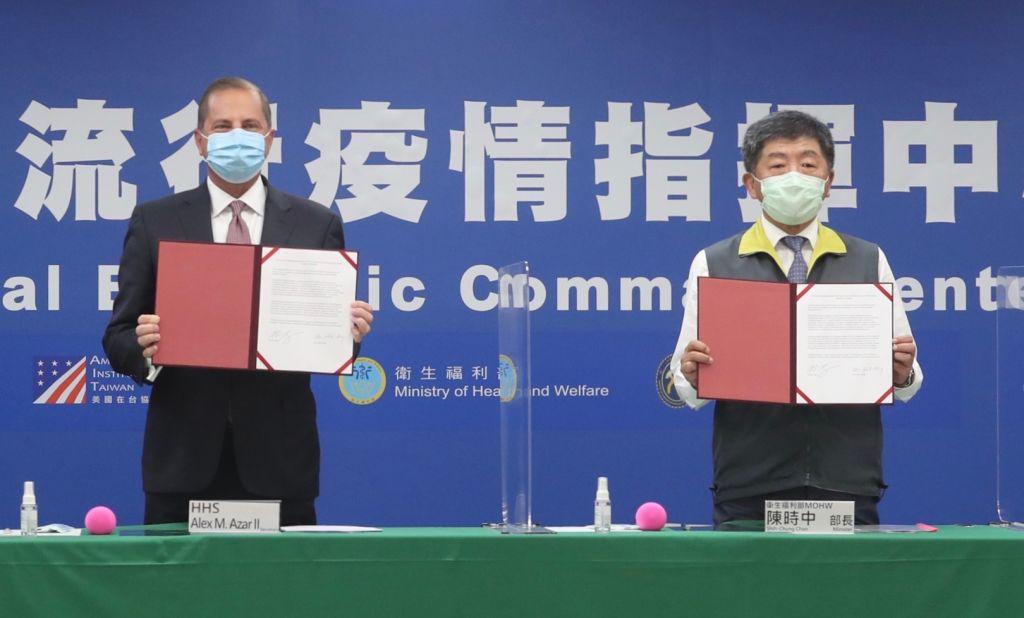TAIPEI, Taiwan—U.S. Health and Human Services (HHS) Secretary Alex Azar credited Taiwan’s open and democratic system for successfully containing the spread of the CCP (Chinese Communist Party) virus, while calling out Beijing for its past and present failures to contribute to global health.
Azar made the remarks at a press conference in Taipei on Aug. 10 while overseeing the signing of a landmark memorandum of understanding (MoU) to expand public health cooperation between Taiwan and the United States.





